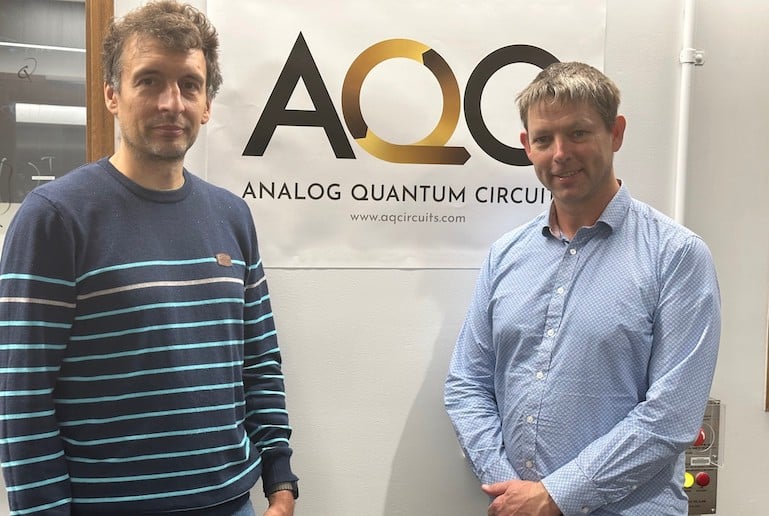Two University of Queensland professors have launched a quantum hardware startup with $3 million from Australia’s oldest VC fund, Uniseed.
Analog Quantum Circuits (AQC) is the brainchild Professor Tom Stace and Associate Professor Arkady Federov following a decade of research. The startup plans to design and fabricate advanced superconducting devices for quantum computing.
It’s the first company to build quantum hardware in Queensland and will manufacture components 10 times thinner than human hair.
Professor Stace said AQC was working to commercialise microwave circulators 1000 times smaller than current technology.
“Commercial circulators are the size of a matchbox and we have managed to shrink them to a few tens of micrometres, which is a fraction of the width of a human hair,” he said.
“A quantum computer is measured by the number of elementary parts called qubits, and it is estimated that at least a million of these will be needed before they become useful for complex computations.
“We’re building miniature components that will scale with the quantum computer, so companies building the rest of the system are able to incorporate our technology.”
AQC is Australia’s first superconducting quantum tech startup and its five-member team works out of the Superconducting Quantum Devices Lab at UQ’s St Lucia campus, building on work started within the Australian Research Council (ARC) Centre of Excellence for Engineered Quantum Systems (EQUS).
EQUS director Prof. Andrew White said AQC is the latest success from the Centre’s translational research program.
“Arkady and Tom and their team have worked very hard to translate their technology from an idea on paper, to a prototype and now to a business,” he said.
“We look forward to seeing their devices in all future quantum computers.”
AQS cofounder Dr Arkady Fedorov said their work is done in cryogenic dilution refrigerators running at minus-273C – 100 times colder than outer space.
“Quantum hardware is exquisitely sensitive, and even the ambient electrical noise at room temperature is 10,000 times too loud, so the microwave circulator that we are building helps shield that noise,” he said.
“We are developing part of the communications channel between the outside world and the quantum computer others are trying to build, so that interface technology must sustain the temperature difference between the interior and exterior of the fridge.”
The Queensland government is planning to spend $76 million over the next four years as part of the state’s quantum and advanced technologies strategy, building on the federal government’s National Quantum Strategy.




















Trending
Daily startup news and insights, delivered to your inbox.